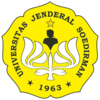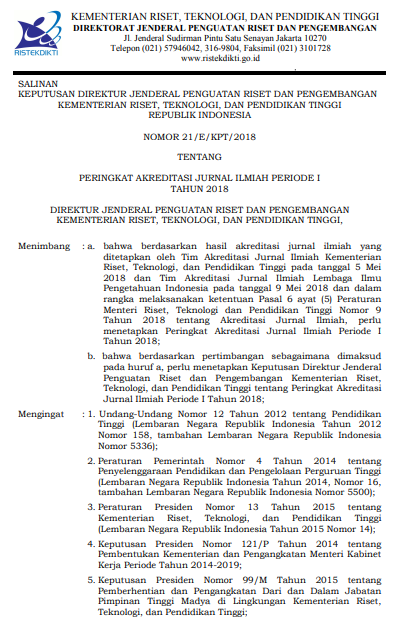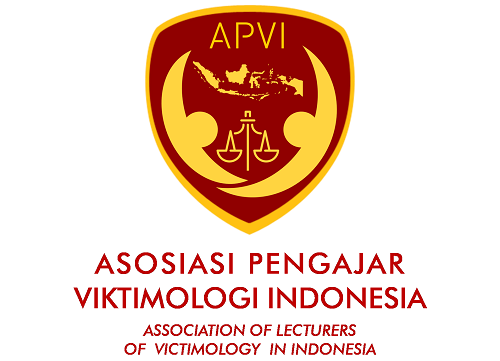Comparative Presidential's Role, Systems and Constitutional Practice Between Indonesia and South Korea
Abstract
Indonesia and South Korea are two countries that both use a presidential system. This indicates that the two countries have something in common, especially regarding presidential institutions. But if we dive deeper, there are also differences between the two countries. But if you dive deeper, there are also differences between the two countries. This research has two research questions. What is the similarity between the presidential system in Indonesia and South Korea, and what are the differences between them. The results of the study found that although both use the presidential system of government, such a thing does not guarantee the equality of the position of the presidential institution in each country. In constitutional practice, there are variants of similarities and differences.
Full Text:
PDF View
References
Ahn, Kyong Whan. “The Influence of American Constitutionalism on South Korea.” S. Ill. ULJ 22 (1997): 71.
Arsil, Fitra. “Teori Sistem Pemerintahan: Pergeseran Konsep Dan Saling Kontribusi Antar Sistem Pemerintahan Di Berbagai Negara.” Depok: PT Raja Grafindo Persada, 2017.
Asshiddiqie, Jimly. Konstitusi Dan Konstitusionalisme Indonesia. Sinar Grafika, 2021.
———. “Pengantar Ilmu Hukum Tata Negara Jilid II, Jakarta.” Sekretariat Jendral Dan Kepaniteraan MK RI, 2006.
Barton, Greg. Abdurrahman Wahid: Muslim Democrat, Indonesian President. University of Hawaii Press, 2002.
Bedeski, Robert. The Transformation of South Korea: Reform and Reconstitution in the Sixth Republic under Roh Tae Woo, 1987-1992. Routledge, 2002.
Bland, Ben. Man of Contradictions: Joko Widodo and the Struggle to Remake Indonesia. Penguin Random House Australia, 2021.
Boer, Mauna. “Hukum Internasional Pengertian Peranan Dan Fungsi Dalam Era Dinamika Global.” Jakarta: PT Alumni, 2001.
Bünte, Marco, and Mark R Thompson. “Perilous Presidentialism in Southeast Asia?,” 2018.
Cha, Victor D. “Politics and Democracy under the Kim Young Sam Government: Something Old, Something New.” Asian Survey 33, no. 9 (1993): 849–63.
Chaibong, Hahm. “South Korea’s Miraculous Democracy.” Journal of Democracy 19, no. 3 (2008): 128–42.
Chandranegara, Ibnu Sina. “Architecture of Indonesia’s Checks and Balances.” Constitutional Review 2, no. 2 (February 2016): 270–91. https://doi.org/10.31078/consrev226.
———. “Defining Judicial Independence and Accountability Post Political Transition.” Constitutional Review 5, no. 2 (2019): 294–329.
———. Kemerdekaan Kekuasaan Kehakiman Pasca Transisi Politik. Jakarta: Radjawali Press, 2019.
Chandranegara, Ibnu Sina, and Syaiful Bakhri. “Designing Presidentialism Cabinet Under a Multiparty System in Indonesia.” International Journal of Innovation, Creativity and Change 15, no. 2 (2021): 908–22.
Chandranegara, Ibnu Sina, and Dwi Putri Cahyawati. “Conflict of Interest Prevention Clause in the Constitution: The Study of the Indonesian Constitution.” Heliyon, 2023.
Chang, Ha-Joon, and Hong-Jae Park. “An Alternative Perspective on Government Policy towards the Chaebol in Korea: Industrial Policy, Financial Regulations, and Political Democracy.” Competition and Corporate Governance in Korea: Reforming and Restructuring the Chaebol, 2004, 24–61.
Friedrich, Carl Joachim. “Constitutional Government and Democracy; Theory and Practice in Europe and America,” 1941.
Goffar, Abdul. “Perbandingan Kekuasaan Presiden Indonesia Setelah Perubahan UUD 1945 Dengan Delapan Negara Maju.” Jakarta: Kencana, 2009.
Haggard, Stephan, and Jong-Sung You. “Freedom of Expression in South Korea.” Journal of Contemporary Asia 45, no. 1 (2015): 167–79.
Hahm, Chaihark. “Beyond ‘Law vs. Politics’ in Constitutional Adjudication: Lessons from South Korea.” International Journal of Constitutional Law 10, no. 1 (2012): 6–34.
Hanan, Djayadi. Making Presidentialism Work: Legislative and Executive Interaction in Indonesian Democracy. The Ohio State University, 2012.
Harrington, AR. “Presidential Powers Revisited: An Analysis of the Constitutional Powers of the Executive and Legislative Branches Over the Reorganization and Conduct of the Executive Branch.” Willamette Law Review 44 (2007): 1–53.
Heckscher, Gunnar. The Study of Comparative Government and Politics. Vol. 10. Routledge, 2013.
Horiuchi, Yusaku, and Seungjoo Lee. “The Presidency, Regionalism, and Distributive Politics in South Korea.” Comparative Political Studies 41, no. 6 (2008): 861–82.
Lee, Youngjae. “Law, Politics, and Impeachment: The Impeachment of Roh Moo-Hyun from a Comparative Constitutional Perspective.” The American Journal of Comparative Law 53, no. 2 (2005): 403–32.
Mahfud, MD. “Dasar Dan Struktur Ketatanegaraan Indonesia.” Universitas Islam Indonesia Press, Yogyakarta, 1993.
Ma’mun, Abdul Rahman, and Meidi Kosandi. “Politik Pendanaan Kampanye Dalam Pemilihan Presiden 2019.” LITERATUS 2, no. 2 (2020): 162–80.
Manan, Bagir. Lembaga Kepresidenan. FH UII Press, 2006.
Marpaung, Lintje Anna. “Analisis Yuridis Normatif Perbandingan Prosedur Pemberhentian Presiden Dalam Masa Jabatannya Antara Indonesia Dengan Amerika Serikat Dan Korea Selatan.” Pranata Hukum 10, no. 2 (2015).
McIntyre, Angus. The Indonesian Presidency: The Shift from Personal toward Constitutional Rule. Rowman & Littlefield, 2005.
Mobius, J Mark. “The Japan-Korea Normalization Process and Korean Anti-Americanism.” Asian Survey, 1966, 241–48.
Mochtar, Zainal Arifin, and Kardiansyah Afkar. “President’s Power, Transition, and Good Governance.” Bestuur 10 (2022): 68–84.
Moon, Chung-in. “South Korea in 2008: From Crisis to Crisis.” Asian Survey 49, no. 1 (2009): 120–28.
Power, Thomas P. “Jokowi’s Authoritarian Turn and Indonesia’s Democratic Decline.” Bulletin of Indonesian Economic Studies 54, no. 3 (2018): 307–38.
Rishan, I. “Risiko Koalisi Gemuk Dalam Sistem Presidensial Di Indonesia.” Jurnal Hukum Ius Quia Iustum 27, no. 2 (2020): 219–40.
Shane, PM. “Independent Policymaking and Presidential Power: A Constitutional Analysis.” The George Washington Law Review 57 (1988): 596–626.
Strnad, Grazyna. “The Sixth Republic under Roh Taw Woo: The Genesis of South Korean Democracy.” Polish Pol. Sci. YB 39 (2010): 204.
Suny, Ismail. Pergeseran Kekuasaan Eksekutif. Aksara Baru, 1965.
Tutik, Titik Triwulan. Konstruksi Hukum Tata Negara Indonesia Pasca Amandemen UUD 1945. Prenada Media, 2016.
Ziegenhain, Patrick. “Consensual Decision-Making and No Rebels: Presidentialism in Indonesia.” Presidents, Unified Government and Legislative Control, 2021, 145–61.
———. “Deficits of the Indonesian Parliament and Their Impact on the Democratisation Process.” Democratisation in Indonesia after the Fall of Suharto, Berlin: Logos, 2005, 27–38.
DOI: http://dx.doi.org/10.20884/1.jdh.2023.23.1.3521
Refbacks
- There are currently no refbacks.
JURNAL DINAMIKA HUKUM Indexed by :
 | Jurnal Dinamika Hukum | |
| Faculty of Law, Universitas Jenderal Soedirman | Copyright of Jurnal Dinamika Hukum | |
| Yustisia IV Building, Law Journal Center | ISSN 2407-6562 (Online) ISSN 1410-0797 (Print) | |
| Purwokerto, Central Java, Indonesia, 53122 | JDH is licensed under a Creative Commons Attribution 4.0 International License | |






